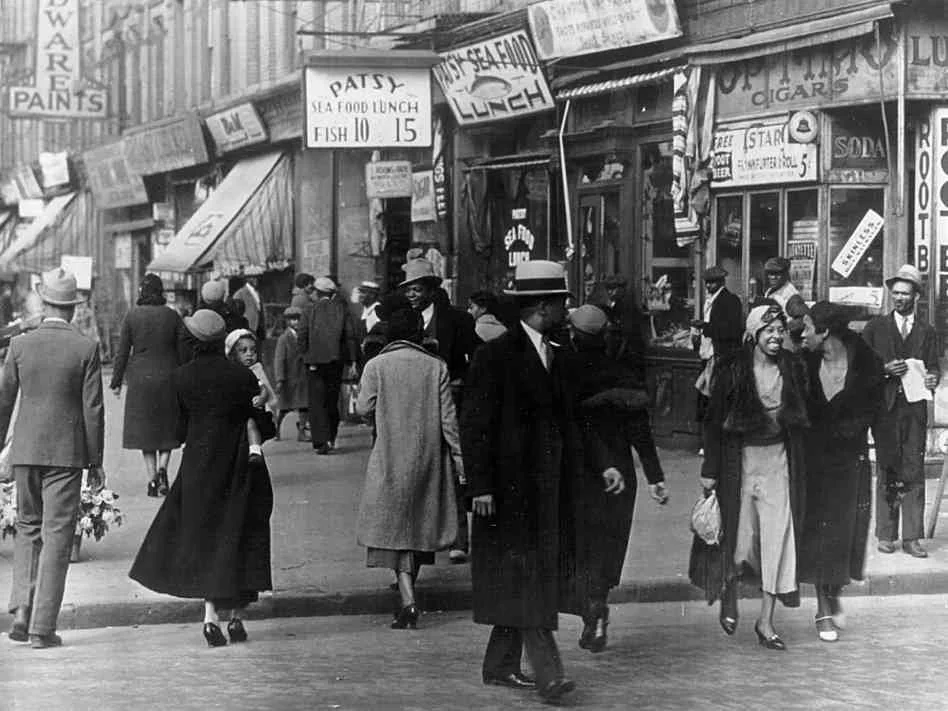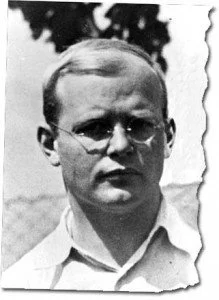Harlem: Where Bonhoeffer Met Jesus
10-10-2014
Shortly after Dietrich Bonhoeffer returned to Germany from his year-long teaching fellowship at Union Theological Seminary in New York, his friends and colleagues noticed that there was something different about him. The analytical scholar who engaged with Christian theology and faith from an academic distance was suddenly passionate about social justice activism and identified as a true Disciple of Christ. The post-fellowship Bonhoeffer preached against the White supremacist theology of the Nazi movement, became involved with the German resistance, and was executed for his complicity in a plot to assassinate Hitler. For decades, biographers, friends, and students of Bonhoeffer have puzzled over his time in New York, trying to tease out what he heard, who he met, and where he went that transformed Bonhoeffer from an academic to an activist.
Reggie Williams, who teaches Christian ethics at McCormick, has an answer that is both new and exciting. “[Bonhoeffer] was writing regularly about his experiences in Harlem,” says Reggie. “His attention and interest in the Gospel was coming from the Black Church.” It is known that Bonhoeffer spent a lot of his time at Abyssinian Baptist Church in Harlem with his friend and Union peer Frank Fischer. Bonhoeffer’s time at Abyssinian has been seen as the source for his interest and passion for Gospel music, but not as the origin for his radical shift in theological perspective. Reggie argues that it was in Harlem that Bonhoeffer learned to see Jesus with and amongst marginalized people. “It is only when he comes into contact with that Jesus that his faith becomes vibrant and real.”
His new book on the subject, Bonhoeffer’s Black Jesus: Harlem Renaissance Theology and an Ethic of Resistance, will be published in October of 2014. This is a culmination of five years spent living with Bonhoeffer—reading his biographies, poring over letters, and studying almost every document in the Dietrich Bonhoeffer Works English project (which has compiled translated every piece of writing attributed to the theologian). Reggie has put together a convincing argument that the Harlem Renaissance had a profound effect on Bonhoeffer, and that it could very well be a major contributor to his theological shift. Glen Stassen, Reggie’s mentor at Fuller Theological Seminary, had argued for years that Abyssinian Baptist Church had been a profound influence on Bonhoeffer’s later writings, and Reggie was able to expand upon that idea. “It occurred to me that Dietrich Bonhoeffer’s time in New York corresponded with this watershed moment in African American History. He met Black Christians who saw Jesus as a co-sufferer, who identified in the world as one of the marginalized, colonized, and oppressed. He identified with poor Jews in Rome; he suffered on the cross with them.”
Stassen encouraged Reggie to explore this idea more, and it became the subject of Reggie’s doctoral thesis. In his new book, Reggie expands upon that thesis and argues that the Black Jesus Bonhoeffer met in Harlem allowed him to see, before other German theologians in the 1930s and 1940s, that racism was a problem for Christians, and that to be a true Disciple one must be an advocate to the marginalized and the outcast. Christianity in the White Church had adapted itself to slavery and imperialism, but the Black Church had not. “Bonhoeffer was able to overcome the racist undertones of theology that he had previously learned in Germany and what was being taught at Union,” says Reggie. “[In Nazi Germany] Bonhoeffer was trying to make sense of Christian apathy and complicity in suffering. What does it mean to follow Jesus in such a context?”
Even though his book will be published in October, Reggie isn’t through with Bonhoeffer yet. The struggle that Bonhoeffer faced is just a version of what every Christian faces every day. “Our interpretation of Jesus shapes our morality,” he says. “Christianity has been calibrated to make slavery work, to make Jim Crow segregation work, to legitimize lynching, to live in a country where millions of children go to bed hungry, but it doesn’t matter as long as you’re living your ‘best life now…What was it that [Bonhoeffer] understood that allows us to hold onto the true presence of Christ in a forest of look-alikes?” Reggie will continue this discussion of Christology and ethics in his classes at McCormick (Love and Justice: Christian Ethics of Bonhoeffer and Martin Luther King Jr, and a class on the Harlem Renaissance), and will be celebrating his book release at the seminary in October.
Dietrich Bonhoeffer would become a giant in Christian thought through his theological and ethical treatises
Reggie Williams is interested in how our interpretations of Jesus influence our morality




